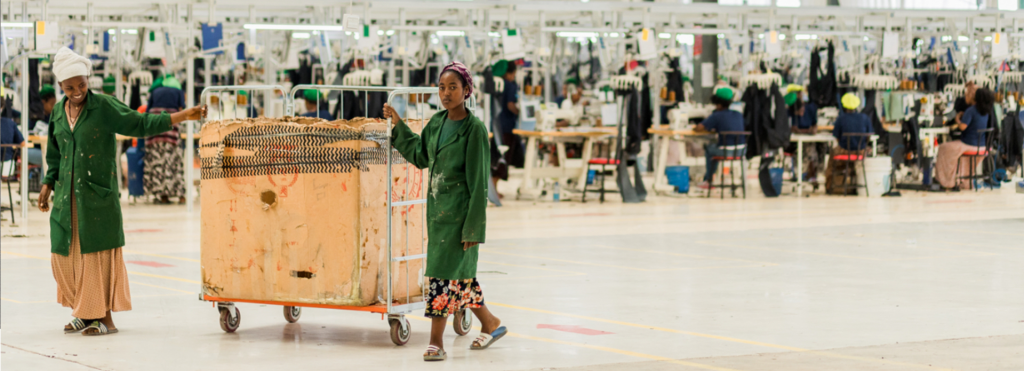Advancing decent work collectively in Ethiopia’s textile industry
The Vision Zero Fund is a key part in the ILO’s SIRAYE programme, which promotes decent work and safe and healthy working conditions in Ethiopia’s garment and textile industries. Under the umbrella of SIRAYE, the Vision Zero Fund coordinates activities with key ILO programmes such as Better Work and SCORE to maximize benefits for constituents. The successes and lessons learned from the SIRAYE programme will be used as a blueprint for the rollout of other projects across various industries in Ethiopia.
The VZF supported 235 factories in establishing and strengthening COVID-19 taskforces as part of its COVID-19 response.



Garment & Textile Supply Chains
The garment and textile industries are priority industries which will help lift Ethiopia to a middle-income country by 2025. These industries employ close to 800,000 workers, with employment increasing every year. However, poor working conditions and low wages result in low productivity and high turnover. There is also a weak regulatory regime and limited social dialogue which hinders the growth of these industries.
The Vision Zero Fund aims to lift productivity and competitiveness of these industries by creating safer working conditions. It seeks to encourage accountable and transparent government institutions and create an enabling environment to prevent work-related deaths, injuries and diseases.
Conducted
training sessions
for more than
40
managers and
900
workers
INTERVENTIONS
- Dissemination of information on improving worker wellbeing
- Conducted training on strengthening national compensation systems
- Guidance documents developed and distributed to inspectors in factories
- Support to revise the national OSH Directive to make it more responsive to existing demands and dynamism of the sector
- Strengthened mechanisms for accurate recording and notification of occupational injuries and illnesses
OUTCOMES
The Vision Zero Fund worked to increase awareness of OSH risks in the textile and garment industries and commissioned studies on how to improve worker wellbeing. In addition, the Vision Zero Fund focused on strengthening the legal and policy frameworks around OSH compliance.
The Vision Zero Fund worked with stakeholders at the national, regional and factory levels to create these interventions. At the national level, the Vision Zero Fund supported the inspectorate in creating stronger compliance plans and improving the Employment Injury Insurance system for workers with work-related injuries and illnesses. The learnings from the factory-level projects were particularly informative and assisted these policy dialogues at the regional and national levels.


